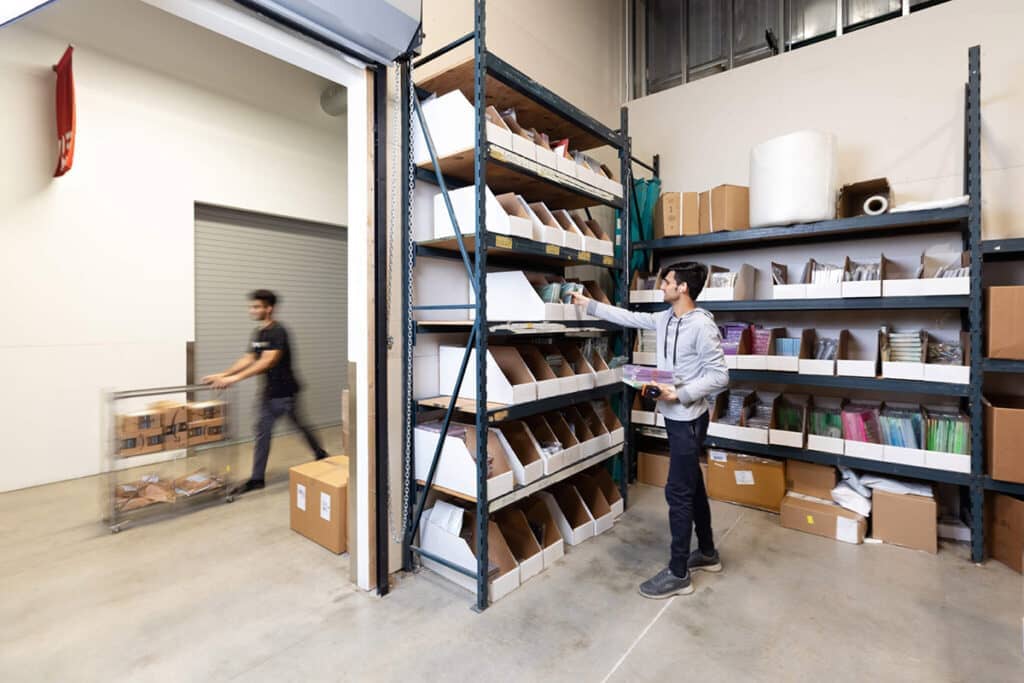Imagine a world without the skilled hands of electricians, plumbers, and mechanics—trade services are the unsung heroes shaping the foundation of our local economies, seamlessly integrating into every aspect of our daily lives from the ground up. These trades encompass a wide spectrum, including electricians, plumbers, auto mechanics, HVAC installers, and many more, each playing a fundamental role in maintaining and enhancing our day-to-day life quality.
At the heart of this ecosystem are small businesses, serving not just as economic participants but as the very backbone of community development and prosperity. They spur job creation, foster innovation, and significantly contribute to the Gross Domestic Product (GDP), marking their indelible impact on economic growth.
We aim to peel back the layers, revealing the invaluable contribution of trade services to local economies, designed with beginners in mind to demystify the pivotal role these services play in our collective economic well-being and community resilience.
The Backbone of Local Economies
Small businesses in the realm of trade services are far more than mere entities conducting transactions; they are the cornerstone upon which the vitality and sustainability of local economies are built. Operating across an extensive range of sectors—from building and mechanical trades to industrial services—these businesses embody the spirit of innovation, opportunity, and essential job creation.
Typically characterized by their modest size, both in terms of the workforce and revenue, small trade service businesses assume a role far greater than their physical dimensions suggest. They are pivotal in knitting the social and economic fabric of communities, providing the services that keep our infrastructure reliable, homes safe, and daily life running smoothly.
Whether it’s a carpenter reshaping our living spaces, an electrician ensuring our homes are brightly lit and functional, or an HVAC installer maintaining our comfort through the seasons, these professionals are indispensable.
But their contribution extends beyond the mere provision of services. Small trade businesses drive economic growth by:
- Creating Jobs: They are significant employment generators, often offering opportunities that require varied levels of skill and training, thus catering to a wide cross-section of the community.
- Stimulating Innovation: Faced with the need to compete and stay relevant, these businesses frequently innovate, whether through the adoption of new technologies, processes, or business models.
- Fostering Entrepreneurship: By their very nature, small trade services encourage others to start their own ventures, thereby seeding the next generation of businesses.
- Supporting Local Supply Chains: They typically source materials and services locally, stimulating business for suppliers and associated services within the community.
- Generating Tax Revenues: Through their economic activities, they contribute to the local and national tax base, supporting public services and infrastructure.
Small businesses in trade services enhance the quality of life and economic well-being of the areas they serve by fostering a sense of community. They often offer personalized, customer-focused services that larger entities cannot, contributing to a community’s unique character and resilience.
Trade services provided by small businesses are not just cogs in the economic machine but are vital drivers of growth, innovation, and community well-being.
Enhancing Trade Operations through Efficient Logistics
In the heart of local economies, the efficiency of logistics plays a pivotal role in the success and expansion of trade services. Effective logistics are not just about moving goods from point A to B but ensuring that services such as electrical work, plumbing, construction, and HVAC maintenance are delivered promptly, efficiently, and with the highest quality. This section explores how optimizing logistics can significantly benefit trade operations at the local level, emphasizing streamlined processes and improved service delivery.
Efficient logistics within the trade services sector can transform the operational landscape by:
- Reducing Response Times: By improving routing and scheduling, trade services can reach their customers more quickly, enhancing customer satisfaction and trust.
- Minimizing Costs: Efficient logistics help in reducing fuel consumption, minimizing idle times, and optimizing workforce deployment, directly impacting the bottom line favorably.
- Boosting Productivity: With smart logistics solutions, businesses can handle more service calls per day, effectively increasing their productivity and revenue potential.
- Enhancing Service Quality: Timely and reliable service delivery, facilitated by efficient logistics, helps in building a positive reputation, encouraging repeat business and referrals.
- Supporting Local Supply Chains: By efficiently managing logistics, trade services can ensure that the necessary materials and equipment are available when needed, reducing delays and increasing the efficiency of service provision.
For small businesses in the trade sector, the benefits of efficient logistics are manifold. It not only allows them to compete more effectively in their local markets but also provides a foundation for scaling their operations, exploring new service areas, and innovating in service delivery methods.
Technology plays a crucial role in enhancing logistics for trade services. Modern tools and software enable businesses to optimize routes, manage schedules more effectively, and communicate with customers about arrival times or potential delays. This technological integration into logistics not only streamlines operations but also enhances transparency and customer engagement.
Ultimately, the goal of improving logistics in the trade services sector is to ensure that businesses can meet and exceed customer expectations with every service call.
Fostering Entrepreneurship and Innovation Through Trade Services
Trade services, which include a vast array of vital functions serve as more than mere functional entities within our communities. They stand as the bedrock for fostering an environment where entrepreneurship flourishes and innovation becomes the norm rather than the exception. By laying down the infrastructure for economic activity, small businesses within the trade sector are pivotal in driving local economies forward, infusing them with vibrancy and dynamism.
Creating a Culture of Innovation
The provision of trade services inherently encourages a culture of innovation. As these businesses strive to meet the unique demands of their clientele, they are often at the forefront of adopting new technologies and methodologies.
From leveraging sustainable building materials and practices to integrating smart home technologies, the sector is constantly evolving. This adaptability not only enhances the efficiency and quality of the services provided but also sets a benchmark for innovation within the community, inspiring others to think creatively and pursue novel solutions.
Empowering Local Economies
The impact of fostering entrepreneurship and innovation through trade services extends beyond the businesses themselves to invigorate the entire local economy. By supporting local supply chains, trade services ensure that the benefits of economic activity are felt widely within the community, reinforcing the interdependent nature of local businesses.
As these businesses grow and succeed, they contribute to the tax base, providing essential funding for community services and infrastructure. This economic cycle creates a supportive ecosystem for new ventures and encourages continuous growth and revitalization of the local economy.
The Environmental and Community Impact of Local Trade Services
Trade services, pivotal in shaping the foundation of our communities, extend their influence far beyond the realm of economic contributions. They embody a critical force for environmental stewardship and sustainability within the fabric of local ecosystems. By embracing and implementing sustainable practices, small businesses within the trade sector become instrumental in enhancing the environmental health and sustainability of their communities.
This commitment to eco-friendly operations can range from utilizing green materials in construction projects to adopting energy-efficient technologies in HVAC systems, each action contributing to a larger vision of a healthier planet.
Small businesses in the trade services sector are uniquely positioned to champion sustainability. Their local presence and operational scale allow for a direct and meaningful impact on environmental conservation efforts.
Whether through reducing waste, minimizing energy consumption, or employing renewable energy sources, these businesses set a precedent for sustainability that resonates throughout the community. By leading through example, they not only contribute to the environmental health of their locales but also inspire other businesses and individuals to adopt more sustainable practices.
The Road Ahead for Small Trade Services
As we look to the future, the importance of trade services in boosting local economies cannot be overstated. Through fostering innovation, supporting local economies, and contributing to the sustainability of communities, trade services—especially those provided by small businesses—will continue to be indispensable.
Understanding the vital role of trade services is crucial for anyone interested in the health and future of local economies. By supporting and prioritizing these services, we can ensure a thriving, resilient, and sustainable economic landscape for generations to come.
Blog Info: Author – Laura Johnson Category – Trade Business Mastery





 ►
Explore 3D Space
►
Explore 3D Space